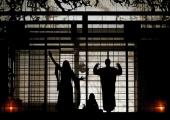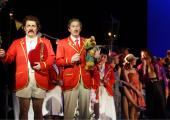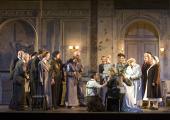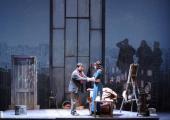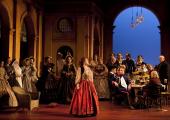The Cunning Little Vixen, Welsh National Opera
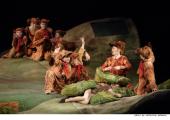
Janáček’s animal tale a visual and orchestral treat, vocally more problematical
Janáček’s opera subjects – the 300-year-old opera singer, the composer with a mad mother-in-law, the Siberian prison camp – are by any standards a fairly rum collection. But The Cunning Little Vixen is arguably the most deviant of the whole bunch. Its foxy heroine (out of a Prague newspaper cartoon strip) is captured by the local Forester, lectures his hens about their subservience to the Cockerel, slaughters the lot of them, runs off, marries, starts a family, then allows herself to be shot by the poacher. All very charming, random and pathetic, one might feel.

